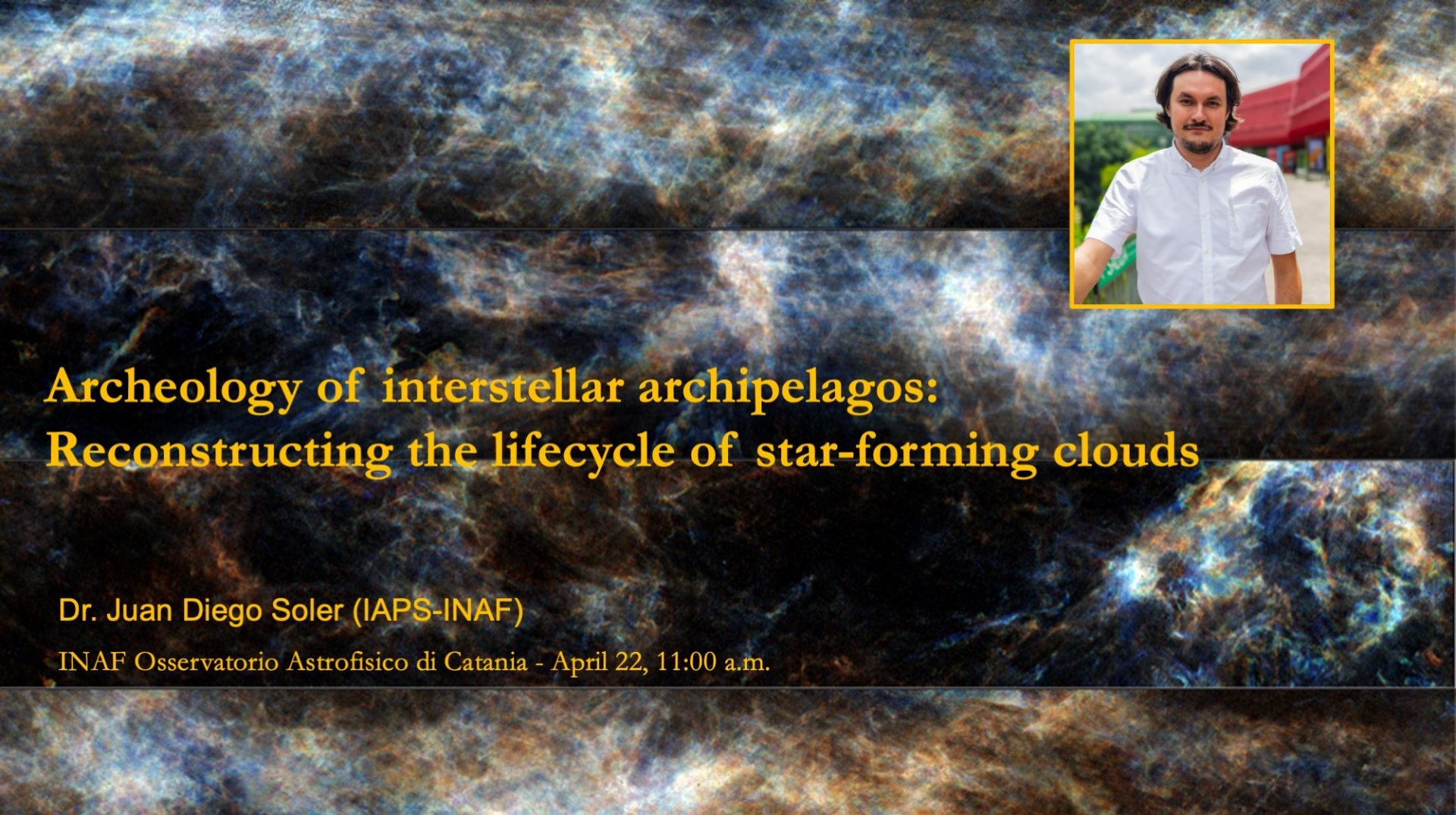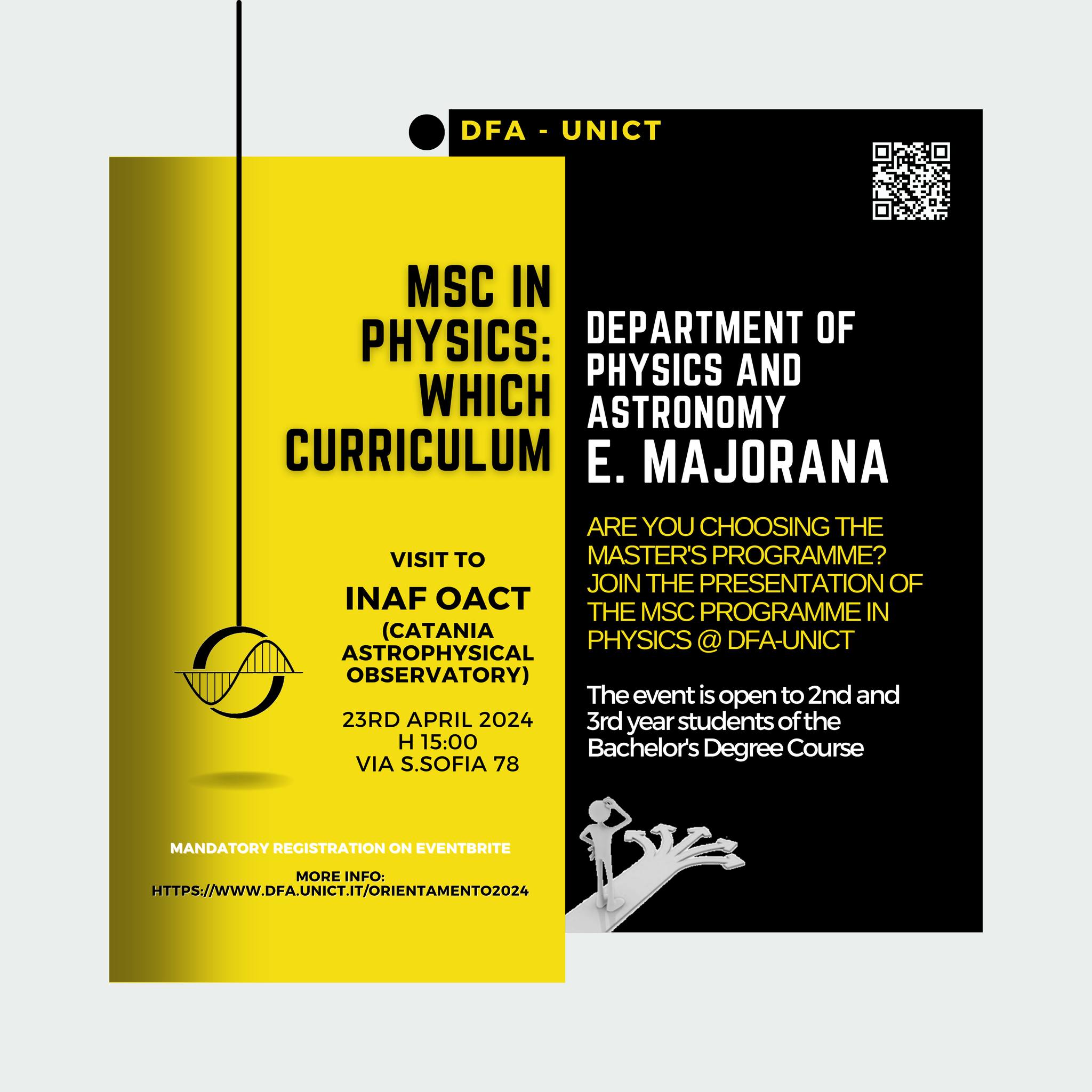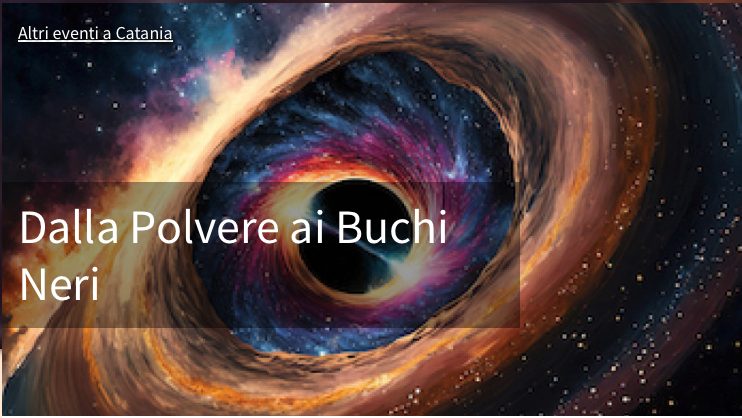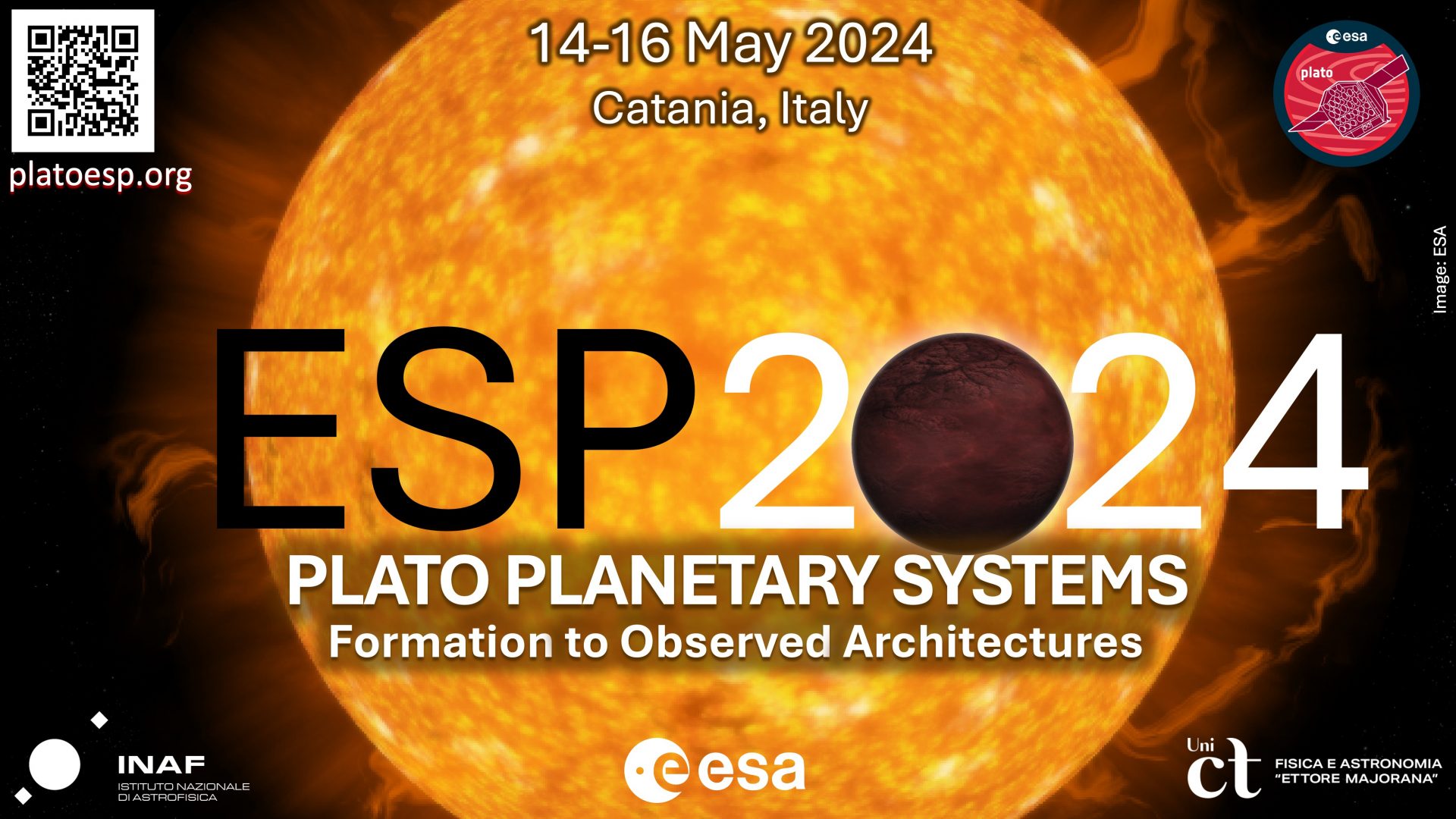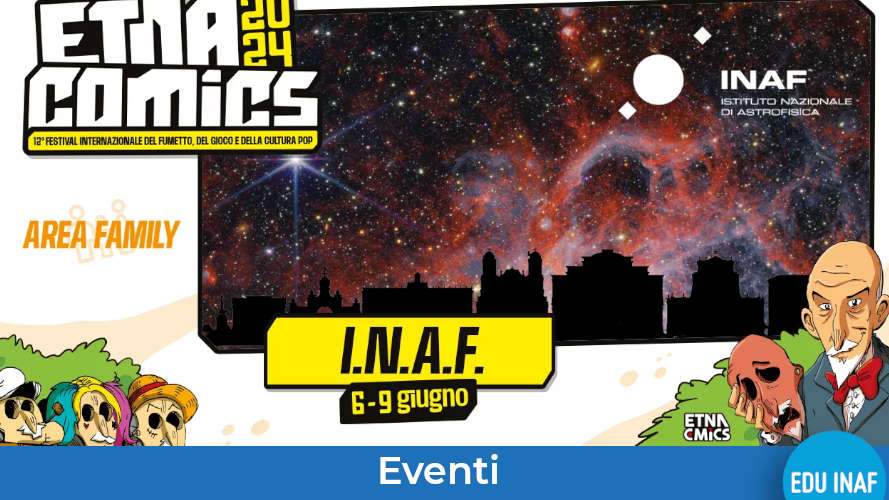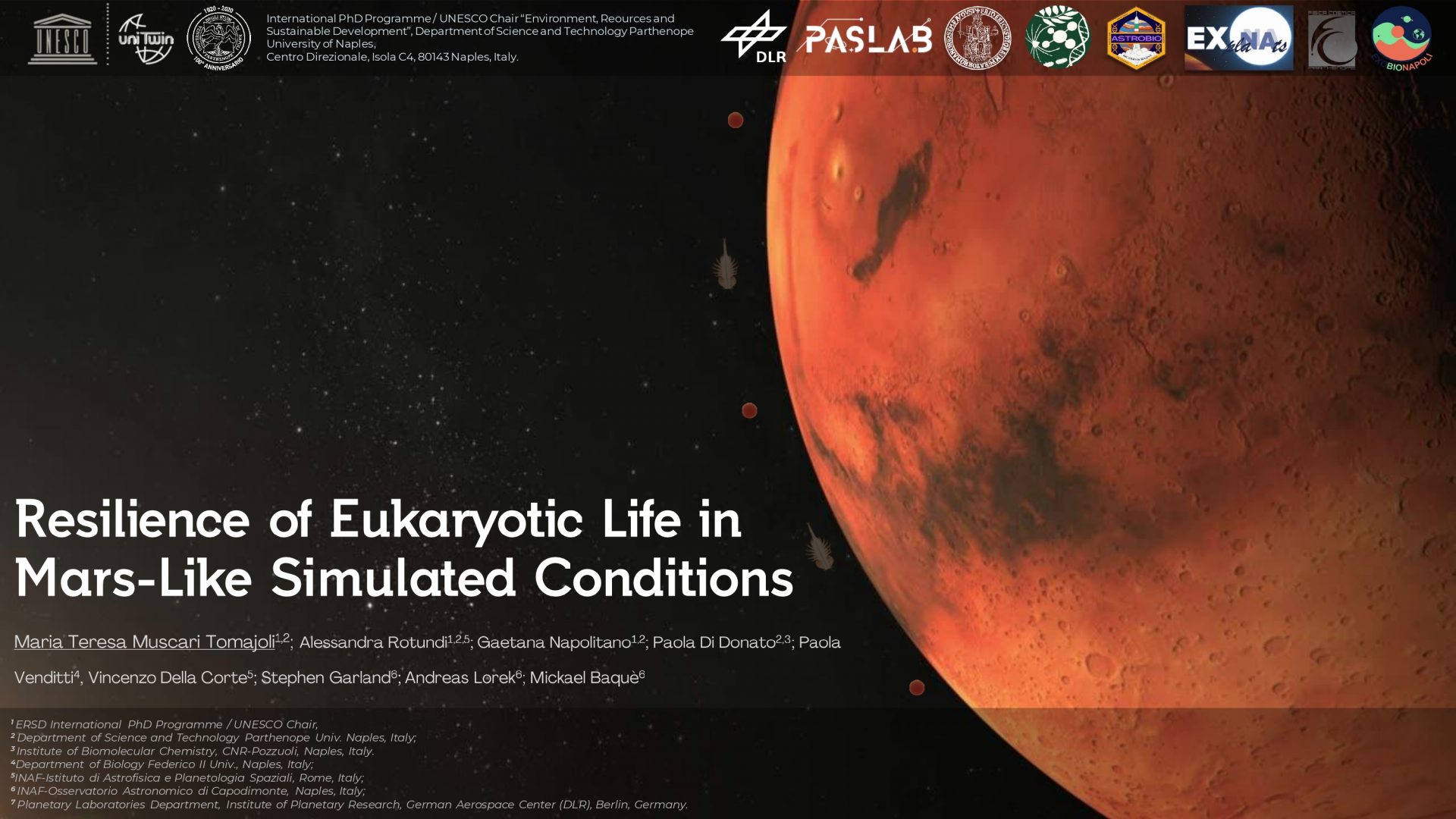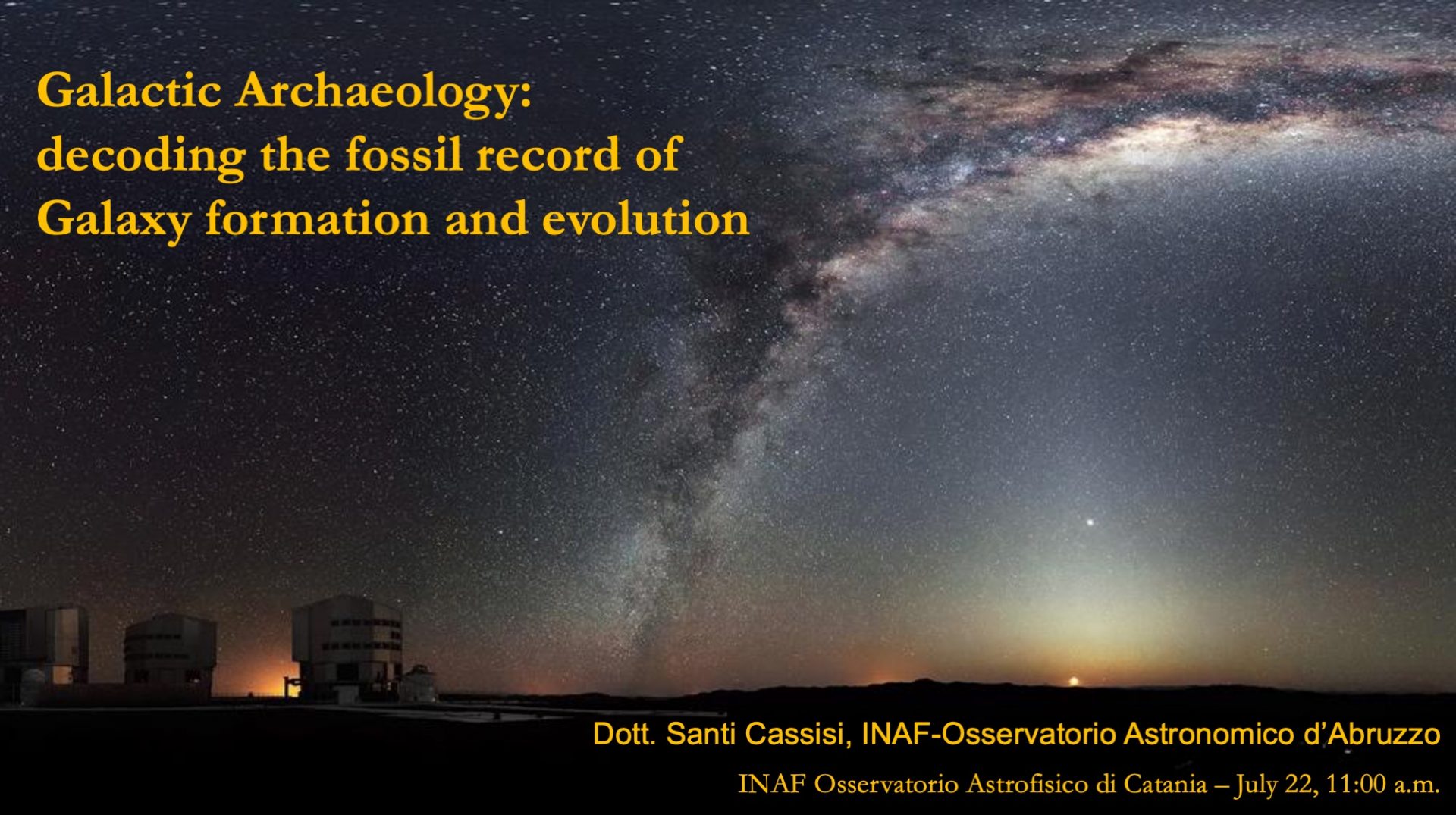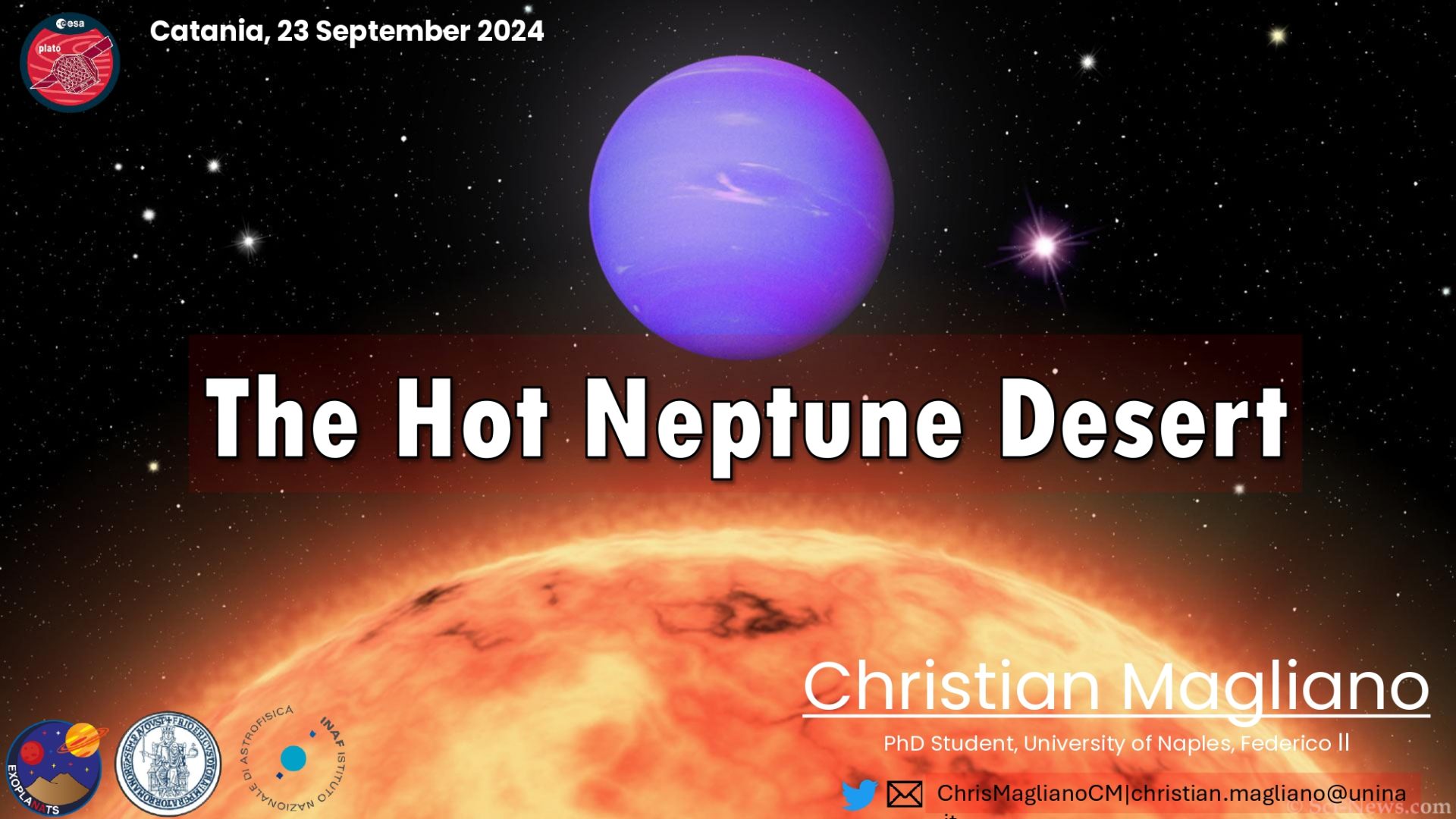Archeology of interstellar archipelagos: Reconstructing the lifecycle of star-forming clouds
Sede A. Riccò Via Santa Sofia 78, CataniaDetermining how star-forming molecular clouds (MCs) arise from and interact with the diffuse interstellar medium (ISM) is crucial for understanding the initial conditions of planet and star formation and the evolution of the Milky Way and other similar galaxies. I will present state-of-the-art observations of neutral atomic hydrogen (HI) and interstellar magnetic fields, which, combined with numerical simulations and novel statistical tools based on machine vision, reveal three crucial aspects of the MC lifecycle. First, the signature of magnetization in the structure of MCs in the solar neighborhood, within 500 parsecs from the Sun. Two, the imprint of supernova feedback in the HI structure across the Galactic plane. And finally, the coupling between atomic and molecular gas in and around MCs. I will discuss the consequences of these findings for our understanding of the Galactic ecosystem and the prospects for radio-interferometric and submillimeter polarization observations from the forthcoming facilities.
